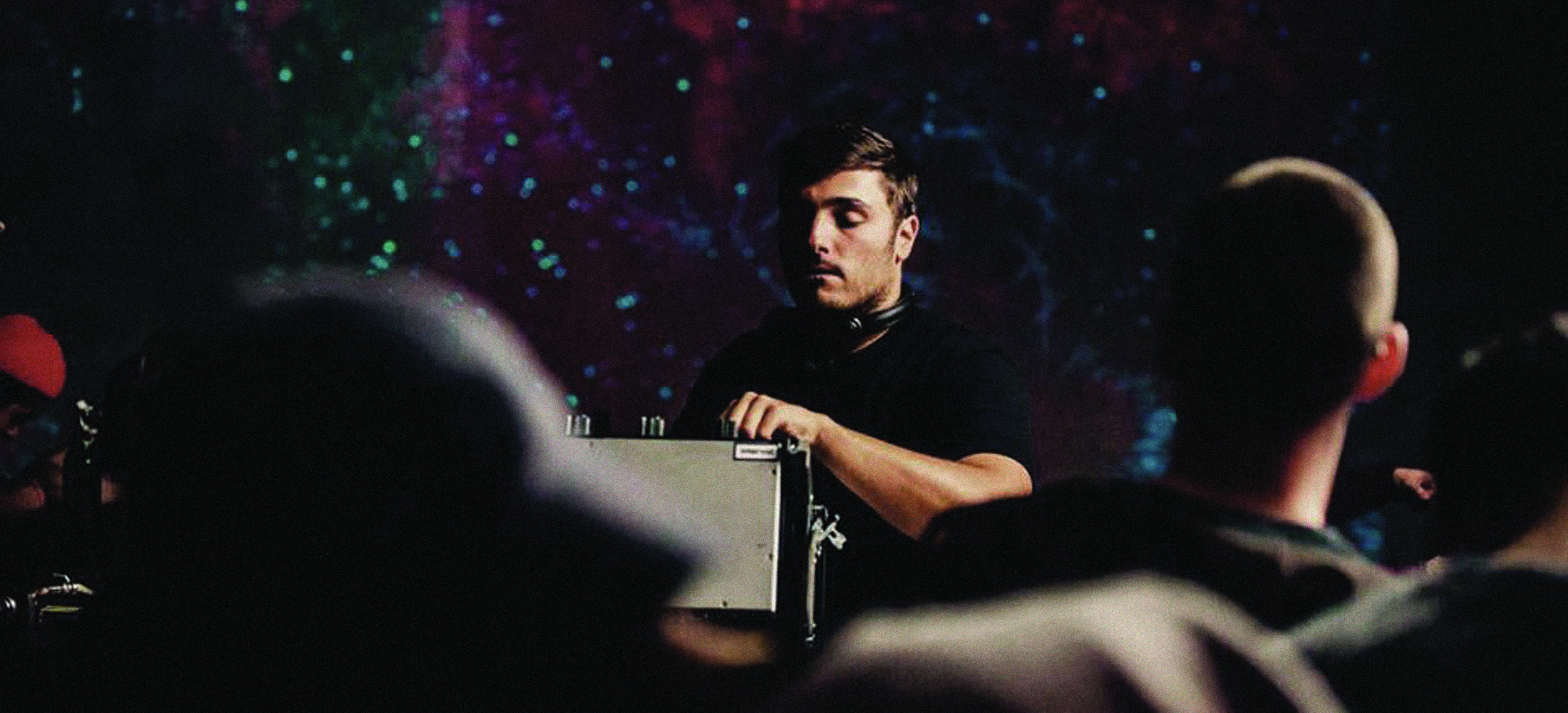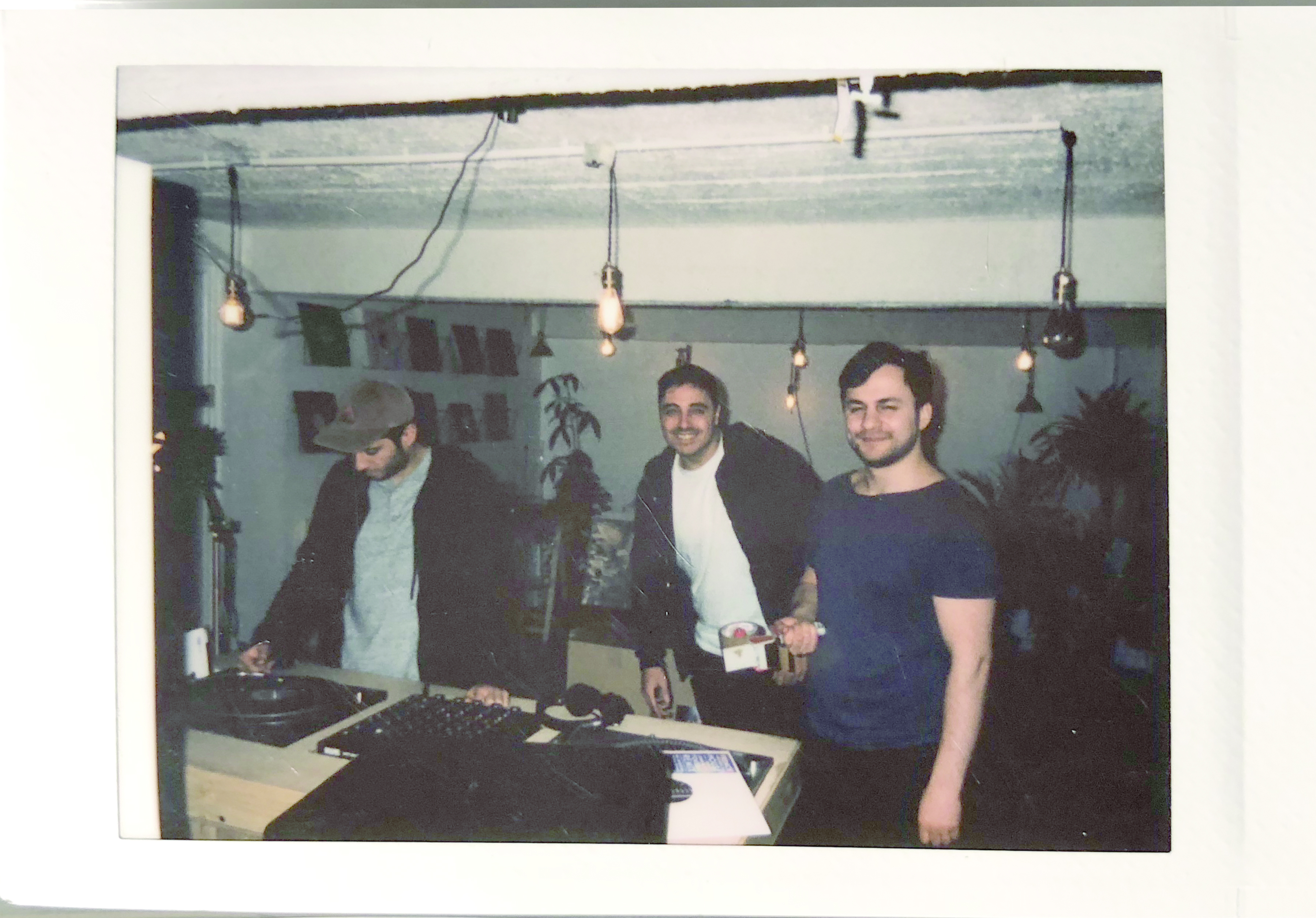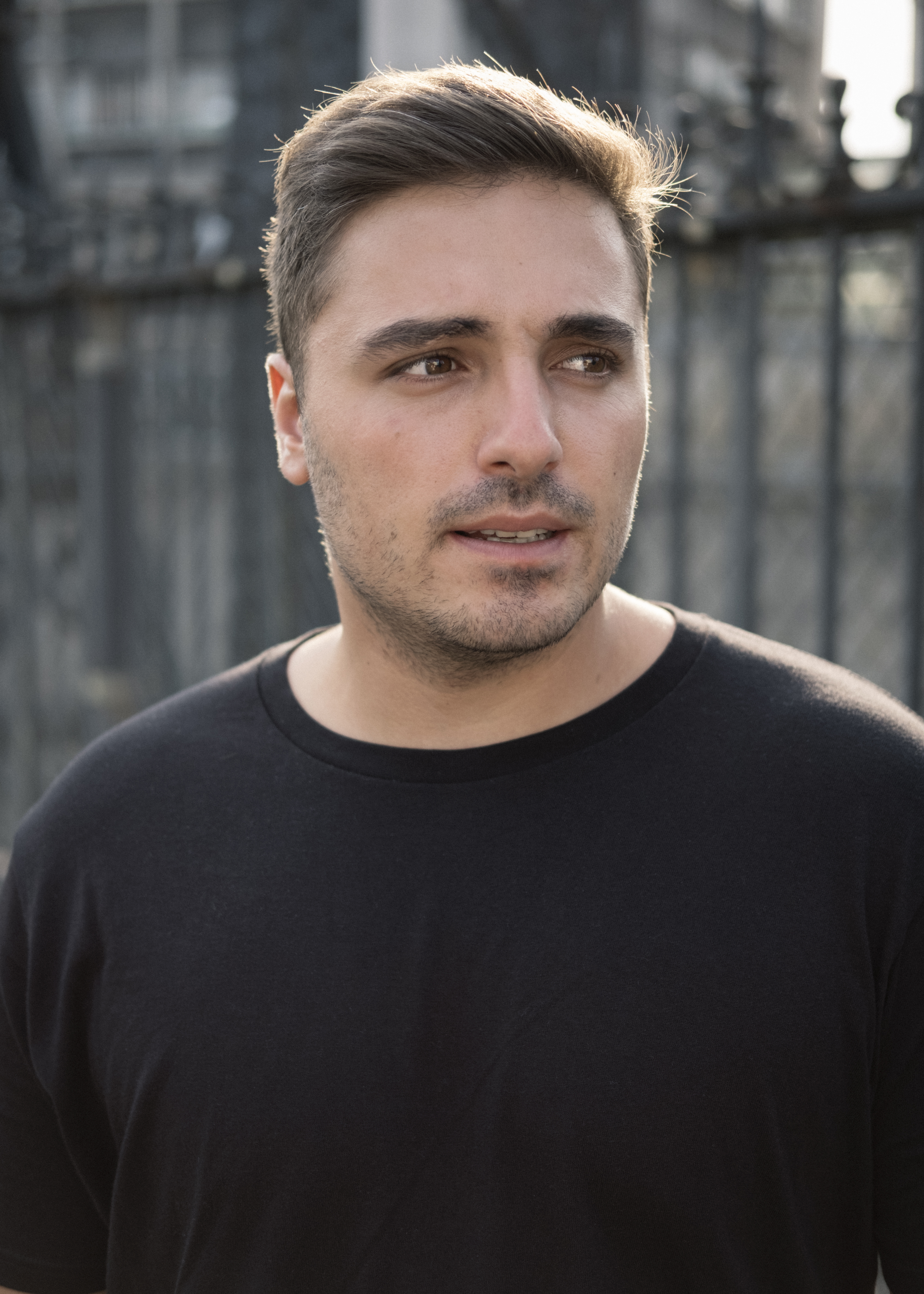20 Questions: Janeret
Quick-fire questions with the rising French talent.

20 Questions: Janeret
Quick-fire questions with the rising French talent.
Mickael Jeanneret is one of a handful of talented rising French DJ-producers signed to Yoyaku, the Paris-based record label, record store, and booking agency. As Janeret, he performs regularly through Europe, but has also toured through Japan, Australia, and the Americas, acknowledged for his energetic sets that incorporate minimal house and breaks. He’s also widely known for his production work: a steady stream of exceptional EPs have established him as “pretty much a purchase-on-sight artist, which is a rarity,” writes one Discogs user.
Janeret grew up in Grenoble, a city in south-eastern France, but has called Paris home since 2010. It was around this time that he began “taking production seriously,” he explains; his earliest experiments had started several years earlier. He marked his relocation to the French capital with a slew of releases on various imprints, but it wasn’t until 2015’s Heat EP that Janeret began to feel comfortable with his production methods and style, a smooth take on deep house with a solid groove.
The reception of these early works saw Janeret sign to Yoyaku, now a flag-bearer of the French minimal music scene. Under the supervision of Varhat and Benjamin Belaga, the two co-founders, Yoyaku has launched a number of sub-labels through which Janeret and his peers have released, including YYK no label and Aku. Elsewhere, Janeret also heads up Joule Imprint through which he has released music from Teluric and Roger Gerressen, among others.
More recently, Janeret contributed a track to XLR8Rplus, a monthly subscription service to complement the main XLR8R site. Each month we share three unreleased tracks from three different artists—both known legends and lesser-known pioneers—that we feel are pushing the scene forward in inspiring ways. These tracks will be available for download in high-quality WAV format for the duration of one month; only subscribers for that particular month will have them. They will not be available anywhere else and there will be no access to archived material. You can find information on the latest edition of XLR8Rplus here.
01. What have you been up to lately?
Actually I’m in the process of preparing some new tracks for 2019 and digging for some new music.
02. How old were you when you first got into electronic music?
I was around 17 when I found the first track I really fell in love with Mr. Fingers’ “Can you Feel It,” which I heard on a local radio show.
03. When did you first start to DJ, and how quickly did you learn?
I started to play at home at the time, just as a hobby, and then I started to play in bars and small clubs around 2009. I was playing every weekend with the residents of a club called Vertigo in Grenoble, where DJs like Laurent Garnier or Jeff Mills came. I started to learn there how to read a dancefloor and keep the crowd for a whole night. Then, once I moved to Paris, I began to play under the name Janeret, playing in different parties and small clubs, but my first big one was at Concrete in 2014 invited by Nick V. He helped me a lot for my first steps in Paris.
04. What did your earliest experiments with production sound like, and how did your sound move towards the smooth, deep house you produce today?
My first step into electronic music was more classic house and deep house; I was trying to produce in that way, but then I definitely found my thing around 2014. The first track I was really happy with was called “Skyward,” released on Chez Damier’s sub-label Courtesy of Balance, managed by Brawther who chose the tracks, and then came the Rutilance EP in 2015, my first solo EP. But the Aku release, 2016’s JNRT444, was where I really started to find my style of production and signature aesthetic.
05. Some of your productions are are closer to jungle than house. What’s the story here?
I’ve been inspired by old school intelligent/atmospheric jungle since one my friends showed me Good Looking Records, LTJ Bukem’s label. I totally fell in love with the music, and I started to produce some jungle tracks as well. I can’t really say my minimal/house work is touched by jungle with its drums but I’ve always loved the atmosphere of pads etc. in jungle music; that has really inspired my work.
06. What are the strengths and weaknesses of Paris’ electronic music scene?
The good thing is that there are a lot of good DJs, producers, parties, and a nice energy in this scene, so everybody wants to push themselves to be better and better. I feel also that the old generation is really kind to the new one and I feel a nice connection between the two. The only thing I miss is a smaller club, with like 300/400 people capacity with a perfect sound system. We have big clubs with a pretty nice sound system but I much prefer the vibe in an intimate club with a high quality sound system, where every detail is calculated. Acoustic, visual, and sound etc.
07. How and when did you first become close with Varhat and Benjamin at Yoyaku?
It was in 2015 when I met Benjamin, he was about to create yoyaku and he was asking me if I would be up for being a part of the project and be in the agency. I then met Varhat some months later during the first yoyaku party in Paris and after that we started to create our friendship. We were speaking on the internet, exchanging music advice and feedback about what we were producing.

08. What do you prefer: DJing out at an event or venue, or producing in the studio, and why?
I can’t choose! I love playing music out in a club; when I first arrive in a club and I can hear a perfect sound system, I get very happy and excited for the night. A good sound system for me is really essential, and then when you have a nice crowd and everything goes well, creating a vibe and sharing it with the people is hard to describe; the feeling is just so good. In contrast, producing is really personal and for me an introspective endeavour. I produce most of the time during the night when everybody is sleep to allow me to really be relaxed and be alone with myself; it can sometimes feel like time is suspended. That’s why I love both, although for very different reasons. It’s a balance.
09. Do you have a formula/set process for creating tracks or does it have to happen organically?
Most of the time I jam with the drum machine, then when I’m happy with the loop I start to add synth/pads, then when the loop is nice I start to build the track and add automations, effects, etc. So it’s a kind of formula but, as always during the construction, ideas start to appear and it becomes instinct as to how to finish the track.
10. How much pressure do you feel to evolve your sound, given the interest in it nowadays?
I’m exactly in this period actually: I want to make something new, I don’t really want to say different because I want to keep my vibe while trying to make new things and going out from my comfort zone. It’s not an easy process, I don’t really feel any pressure to do it but it’s the right time, I think, to try something new; to create something original.
11. Have you had any time to reflect on your success, or are you always looking forward?
I’ve thought about it, yes. If someone eight years ago, when I arrived in Paris, had told me that I will travel all around the world to play and live with only my music, I wouldn’t have believed it. It’s also really surprising to meet people during the weekend who know my music, even more so when I travel far away, outside of Europe. At almost every gig, I sign one of my vinyl records and I am so thankful to the people who support my records and for the people who come to parties.

12. What advice would you give to yourself when you were first starting out?
I think it would be to believe in what I do. Choose carefully the people I want to work with. And don’t go too fast: do things step by step.
13. How much of the music that you make do you release?
I think it’s only about 20 per cent . I produce almost everyday and so it’s impossible to release everything. I choose carefully what I release and I must be completely convinced by the track before I release it. I also produce hip-hop, ambient, jungle, dub/reggae, and other stuff. I like to explore different things.
14. To whom do you show your tracks before releasing them?
I show them to my best friends Benjamin and Varhat. That’s the trio. I really trust them, they always give an objective point of view with the good and bad points, and this process is really important to evolve.
15. You continue to produce excellent tracks that get a lot of views on YouTube and are in extremely high demand on Discogs etc. How closely do you follow the comments and the views on your videos?
I closely check most of the time during the first week we post something because I want to see if people like it or not; as I said before, only three people hear it beforehand so I’m always curious to see the public reaction when we finally release it.
16. Does public perception affect you?
Yes, in a good or negative way. I listen to the good points people say to me and the negative ones as well.
17. Where do you dig to for new music, and what’s your process?
I dig in the yoyaku record store where I go almost every week to get the news, and I receive a lot of promos as well. I check Discogs, of course. I more and more also like Beatport. I totally stopped buying on it years ago but if you go deep in it you can find a lot of good music, new and old.
18. What’s the first vinyl you ever owned?
St Germain Boulevard.
19. If you could go B2B with anyone, dead or alive who would it be?
LTJ Bukem for a first jungle set.
20. Do you think carefully about where you’re going as an artist?
Yes of course, it’s really important to make the right choice. I know what I want to do and what I don’t. I trust Benjamin, who is my manager and friend, to help keep me on the right path.

